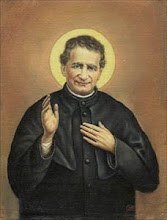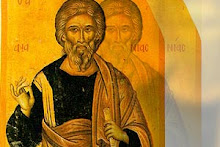 When looking at the role and mission of Catholic Education one who is not familiar with the foundation of Catholic Education may view it as a religious based system directed and operated by Religious Sisters or Priests who are disciplined and demand the best from their students. Other individuals or groups may view Catholic Education let alone Catholic Schools as monarchies of education that direct a strict adherence to Church teaching and a regimented course curriculum that again must be adhered to.
When looking at the role and mission of Catholic Education one who is not familiar with the foundation of Catholic Education may view it as a religious based system directed and operated by Religious Sisters or Priests who are disciplined and demand the best from their students. Other individuals or groups may view Catholic Education let alone Catholic Schools as monarchies of education that direct a strict adherence to Church teaching and a regimented course curriculum that again must be adhered to.Taking these possibly perceived though very general viewpoints on Catholic Education, one is who is sincerely considering Catholic Education for their child or children ought to view how Catholic Education has always taken care of the soul and mind of the child.
One of the greatest Catholic Educators in the Church St. Augustine professed that the mission of Catholic Education is to “assist the child find and encounter a relationship with Jesus Christ.”
The order and structure of Catholic Education is rooted on a proper understanding of the child’s role in society in light of being created in the image and likeness of God. Now, for some this comment may seem extreme or take on an imposition of beliefs. The aim and mission of Catholic education rests on this relationship with Christ where all academic disciplines follow suit.
One of the greatest Catholic Educators in the Church St. Augustine professed that the mission of Catholic Education is to “assist the child find and encounter a relationship with Jesus Christ.” St. Paul in his instruction to St. Timothy urges him teach the truth and that those who do not teach in keeping with our Lord Jesus Christ is full of conceit and knows nothing.[1]
The order and structure of Catholic Education is rooted on a proper understanding of the child’s role in society in light of being-created in the image and likeness of God. Understanding this point, Catholic Schools exist to assist in the formation of a proper Christian Anthropology to every student. The foundation of this Christian Anthropology rests primarily with the parent. The Catholic School aims at assisting the development of the child’s understanding of his/her relationship with Jesus Christ.
Another pillar of Catholic Education in forming the heart and mind of the child is exposing the virtues of Faith and Reason. These key virtues serve as perennial pillars of instructing a child. A vibrant and faithful Catholic community deposits a strong Christ-centered environment where the child is treated as an actual human being in the image and likeness of God. Part of this environment rests on the Catholic School Teacher and their witness of the faith that should ultimately lead to the question of “how am I going to lead these children to a deeper moral understanding of the world centered on Jesus Christ?” Thus, resting on the points mentioned, the mission of Catholic Education is to engage the soul of the child.
This calculated engagement intertwines every academic discipline taught. It is a process by which a balance between faith and reason as mentioned before, is carefully constructed within the framework of the lesson plan. The purpose is not to have the child regurgitate information to the teacher. Catholic Education aims at assisting the child to have moral clarity and utilize the attributes of Reason, Religion, and Kindness as expressed by the Great Catholic Educator St. John Bosco. These principles serve an overarching methodology a Catholic Teacher should employ as a means to cultivate the whole of the child. The Sacred Congregation for Catholic Education (CCE) states in its document entitled: The Catholic School when it comes to the actual instruction of the student within the school, the Catholic school teacher must exhibit a constant reference to the Gospel and a frequent encounter with Christ within the educational framework. (55) The result of this methodology, a child experiences his dignity as a human person.
A student who attends one of our Catholic Schools should not leave with a lower zeal for his faith. On the contrary, the Catholic School should serve as one of the primary vehicles where the student desires a deeper understanding of his faith. It is not enough to espouse our children to be good persons. Goodness is a key attribute in the development of the human being. However, we cannot forget the important virtues of moral truth as key characteristics that our students will take from their Catholic education.
Again, I turn to the (CCE) in its document on The Religious Dimension of Education in a Catholic School in discussing the importance of climate, the document states; from the first moment that a student sets foot in a Catholic School, he or she ought to have the impression of entering a new environment, one illumined by the light of faith, and having its own unique characteristics. (25)
Echoing this statement, Pope Benedict XVI in his address to Catholic Educators at the Catholic University of America in Washington D.C. during his visit to the United States this past April expressed the particular responsibility of every Catholic educator “to evoke among the young the desire for the act of faith, encouraging them to commit themselves to the ecclesial life that follows from this belief.”
What makes a Catholic Education so unique? It draws its identity from the Gospel of Jesus Christ Himself. The process of education in a Catholic School encompasses a genuine Christian journey leading to Heaven. Christian anthropology woven within the entire academic core curriculum effectively provides a true Catholic Educational format where the student understands his relationship in light of Jesus Christ.
In conclusion, a child walking through the doors of any of our Catholic Schools should immediately experience truth, beauty, and goodness. These gifts will help him mature in a Christian manner. The very essence of Catholic Education is Jesus Christ. Proclamation of the Gospel message and preparing the child to receive these gifts serves as the pedestal to a deeper union with Him. In other worlds, we would want our students to view the world through a Catholic lens. This experience will lead the student to understand the Story of Salvation and his unique role in his relationship with Jesus Christ.
In conclusion, what is the mission of Catholic Education? To form the soul of the child into a desire for an intimate relationship with Jesus Christ!
[1] See 1 Tim 6:1-6




No comments:
Post a Comment